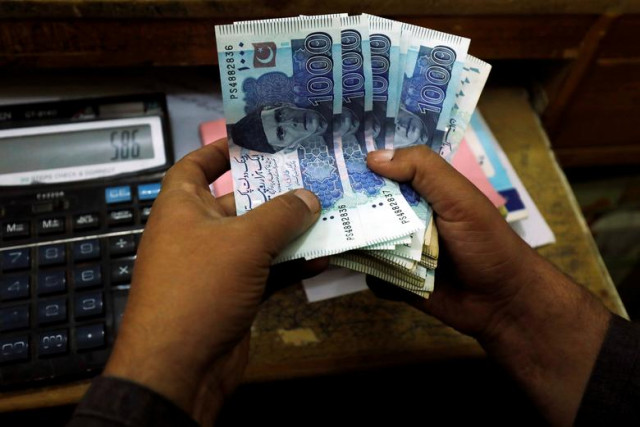Bank deposits grow 17% to Rs17.25tr in Feb
Lending to private sector improves amid partial revival in economic activities

Pakistani banks have appeared to be one of the leading beneficiaries of Covid-19, as they have not only made higher safe lending to the cash-strapped government to help bridge its budget deficit but the lending has helped the banks grow their deposits as well.
The latest numbers suggest that the government remained the single largest borrower from commercial banks and depositor as well during the pandemic. Accordingly, the ratio of investment (lending to the government) to deposits has soared sharply.
At the same time, banks’ lending to the private sector has slightly improved with a partial revival in economic activities in the country. However, the growth in lending to the private sector remained so slow compared to the ones in deposits and investment in government papers (lending to the government).
Read: SBP prepares Digital Bank Regulatory Framework
The situation has resulted in a significant drop in the ratio of advances (lending to the private sector) to deposits. The bank deposits grew 17% in one year to Rs17.25 trillion in February compared to Rs14.81 trillion in the same month of last year, Pakistan’s central bank reported on Friday.
Banks’ investment in government debt securities soared 33% in one year to Rs11.61 trillion in the month under review compared to Rs8.72 trillion in the corresponding month of the previous year. The advances (lending to the private sector; like industries) enhanced just around 4% to Rs8.53 trillion in the month compared to Rs8.21 trillion in February 2020.
“The deposits have partly grown due to government borrowing,” Topline Securities Executive Director Syed Atif Zafar said while talking to The Express Tribune.
The government has raised Rs1.5 trillion in the latest auction of its security papers against maturing ones worth around Rs900 billion. The net increase of Rs600 billion in domestic debt is seen as a requirement of the government for financing which stands high compared to a collection of revenue in taxes.
“The deposits also grew partly due to slowdown in economic activities. Many corporates kept their cash parked in bank accounts instead of investing in new projects during the risky times of the pandemic,” Zafar said.
The growth in deposits is positive for banks, as they remain a cheap source of financing to banks. Later on, the banks use the deposits to make safe lending to the government and lend to the private sector as well. The domestic economy, however, has failed to take benefit of the strong deposits due to the sluggish appetite of the private sector to borrow from banks during the pandemic.
Arif Habib Limited Head of Research Tahir Abbas in a commentary said that the advance-to-deposit ratio has dropped in one year by 620 basis points to 49% in February 2021 compared to the same month of last year. The ratio has decreased by 14 basis points in the month compared to the previous month of January 2021.
On the other hand, the investment-to-deposit ratio has surged by 893 basis points in the one-year period to 67% in February compared to the same month of last year. The ratio has increased 44 basis points in the month compared to the previous month of January 2021, he said.
“The private sector is gradually increasing borrowing from banks since September-October 2020 when Pakistan had seen a notable recovery in Covid-19 infection cases,” Zafar said, adding that the county is fighting a third wave of the pandemic these days.
Also read: Pakistan takes another $1.3b loan from World Bank
“Pickup in advances (lending to the private sector) is a must to see expansion in the economy,” he said, hoping that the advances would surge once the Covid situation comes under control.
“The slow growth in advances has allowed banks to make an aggressive investment in the government papers like T-bills and Pakistan Investment Bonds (PIBs),” he said.
The improvement in the Covid-19 situation would alone not help the private sector to borrow more from banks and support expansion in the economy. He further added that the other factors, which need to be supportive for growth in credit to the private sector, include stability in the benchmark interest rate, stability in local politics, improvement in the relationship with neighbouring countries like India and the US.
Published in The Express Tribune, March 28th, 2021.
Like Business on Facebook, follow @TribuneBiz on Twitter to stay informed and join in the conversation.


















COMMENTS
Comments are moderated and generally will be posted if they are on-topic and not abusive.
For more information, please see our Comments FAQ